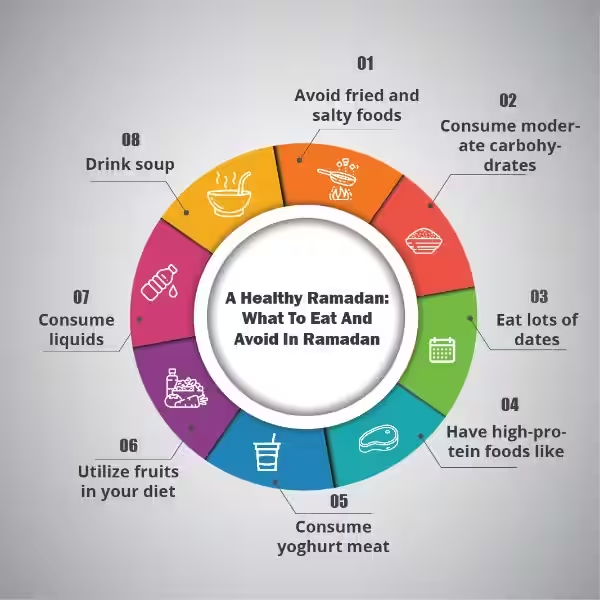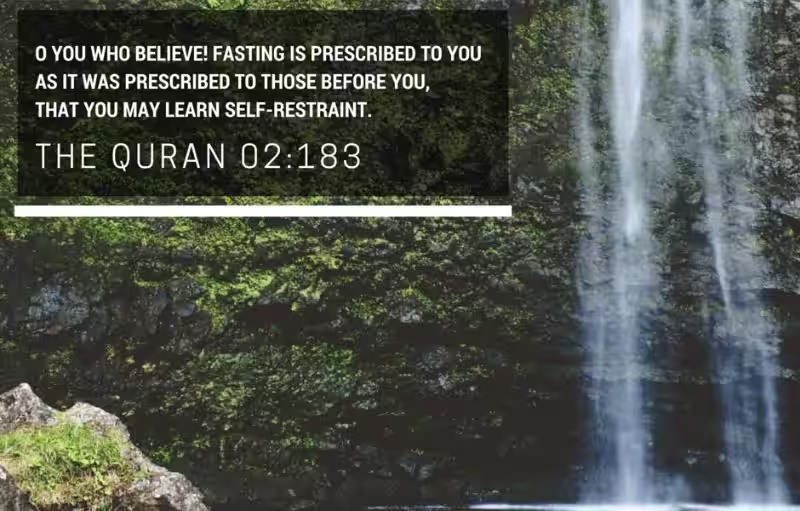
Ramadan, a month of spiritual reflection and heightened devotion, presents unique challenges for women experiencing menstruation. The question of whether or not to fast during this time often sparks debate, touching on the delicate balance between religious obligation and personal well-being. This article delves into the nuances of this issue, providing clarity and support for women navigating this aspect of their faith during Ramadan.
Understanding the Islamic Perspective
Islamic teachings, rooted in the Quran and the Sunnah (teachings and practices of Prophet Muhammad), outline specific guidelines for fasting during Ramadan. These guidelines are generally understood to be designed for the health and well-being of Muslims. However, the specifics of menstruation introduce a layer of complexity. The core principle emphasizes the importance of physical and emotional well-being, recognizing that menstruation can significantly impact these aspects.
Multiple interpretations exist among different Islamic scholars and communities. Some interpretations emphasize strict adherence to the literal texts, while others prioritize the individual’s health and circumstances. This nuanced approach highlights the importance of considering the woman’s unique situation and her ability to maintain physical and mental strength throughout the month.
Can You Eat During Ramadan if You Are Menstruating?
The answer to the question of whether or not to fast during menstruation is generally understood to be: no. Islamic scholars generally agree that women who are menstruating are exempt from the obligation of fasting. This is not a matter of personal choice but rather a widely accepted interpretation of Islamic law. This exemption is rooted in the belief that maintaining physical health and well-being is paramount, particularly during a time of natural bodily processes like menstruation.
This doesn’t mean that women who are menstruating during Ramadan should neglect their spiritual duties. Rather, it emphasizes the importance of finding alternative ways to connect with their faith during this time. A crucial aspect is maintaining a state of spiritual awareness and connection to Allah.
Alternative Spiritual Practices During Ramadan
Even though abstaining from food and drink is not required, the Islamic spirit of Ramadan offers many other ways to fulfill spiritual practices. Instead of fasting, women can engage in alternative spiritual activities that can deepen their connection with their faith.
- Increased Dhikr (remembrance of Allah): Reciting the names of Allah (like Subhanallah, Alhamdulillah, Allahu Akbar) throughout the day can be a powerful way to focus on the Divine.
- Dua (supplication): Engaging in Dua at various times throughout the day can reinforce spiritual connection and gratitude.
- Increased Charity: Contributing to charitable causes or volunteering time can be a powerful spiritual act.
- Quran Recitation: Listening to or studying the Quran, understanding its message, and reflecting on its teachings, can deepen the spiritual experience.
- Increased Prayer: While fasting is not required, the daily prayers are still important.
These activities can reinforce the spiritual essence of Ramadan, and the principle of maintaining devotion and connection with God, even when fasting is not performed.
Navigating the Emotional Landscape
Menstruation can sometimes be accompanied by emotional fluctuations. Ramadan, with its increased spiritual focus, can sometimes heighten these emotional responses. It’s crucial to prioritize self-care and acknowledge the natural physical and emotional demands of this time.
Recognizing that this period is a natural process, and not a sign of spiritual weakness, is important. Maintaining a positive mindset and connecting with the spiritual aspects of Ramadan through other practices can alleviate any negative feelings.
- Mindfulness and Self-Compassion: Practicing mindfulness can help to manage emotional responses related to menstruation. Being kind and compassionate to yourself is vital.
- Connecting with Support Systems: Reaching out to friends, family, or religious leaders can provide comfort and support.
- Prioritizing Rest and Nourishment: Adequate rest and a healthy diet are essential for managing any discomfort or emotional fluctuations.
- Seeking Professional Help if Needed: If emotional challenges persist, reaching out to a healthcare professional or counselor can provide valuable guidance.
A Holistic Approach to Ramadan
The experience of Ramadan is deeply personal. It’s essential to approach this time with compassion and understanding for the individual’s unique needs and circumstances. This means recognizing that the natural processes of the body, such as menstruation, are not distractions from spiritual practice but rather part of the human experience, a reminder of the interconnectedness of our physical and spiritual selves. By focusing on alternative spiritual practices, maintaining self-care, and seeking support when needed, women can enrich their experience of Ramadan even during menstruation.
By understanding and acknowledging the natural human process of menstruation, we can foster a more inclusive and compassionate approach to religious observances, ensuring that spiritual practice remains accessible and meaningful for everyone. This holistic approach encourages a sense of empowerment and belonging, allowing women to fully engage with the spirit of Ramadan in ways that are personally meaningful and supportive of their well-being.
Ramadan is a time for spiritual reflection and connection. While the obligation to fast during menstruation is naturally not required, women can still engage in many ways to experience this spiritual month. Prioritizing self-care, staying connected with their faith through alternative practices, and focusing on the spiritual essence of Ramadan is essential. It is crucial to maintain a positive mindset and a healthy approach to self-care.
Is it Permissible to Eat During Ramadan While on My Period?
This FAQ addresses the question of whether a woman observing Ramadan needs to abstain from eating and drinking during her menstrual period. The debate revolves around the interpretation of religious rules and their application to individual circumstances.
What does Islamic tradition say about fasting during menstruation?
Islamic tradition generally states that women who are menstruating are exempt from the obligation to fast during Ramadan. This is a widely accepted interpretation, based on the understanding that physical well-being is important. The focus is on maintaining health and avoiding undue hardship during this time.
Should I fast if I’m menstruating during Ramadan?
No. Religious guidance generally advises against fasting during menstruation, recognizing it as a natural physiological process that can affect a woman’s physical and emotional well-being.
Is it a mandatory religious rule or a personal choice?
The exemption from fasting during menstruation is considered a generally accepted interpretation of Islamic law, rather than a matter of personal choice. While there may be variations in interpretation, the core principle remains the importance of maintaining health and avoiding undue hardship.
What are some ways to maintain spiritual connection during Ramadan if I’m menstruating?
Many Muslims find ways to maintain spiritual connection during Ramadan while menstruating. These include:
- Increased supplication (Dua): Praying more frequently and focusing on spiritual reflection.
- Increased acts of charity: Contributing to charitable causes, helping others, or donating to those in need.
- Increased remembrance of God (dhikr): Repeating prayers and praising God throughout the day, which can offer spiritual solace.
- Increased recitation of the Quran: Reading parts of the Quran that resonate with you or listening to recitations.
- Reflection and contemplation: Using this time to reflect on one’s faith and spiritual journey.
- Spiritual or religious learning: Engage in activities to learn more about Islam and deepen your understanding.
What about other religious obligations during menstruation?
While fasting is usually not required, other religious obligations such as prayer may still be recommended or encouraged, even during menstruation. Following this guidance is a matter of personal reflection and interpretation.
Can I make up missed fasts later?
Yes, if a woman misses fasts due to menstruation, or for other legitimate reasons, she can make them up at a later time, according to the agreed-upon Islamic guidelines.
What if I have health concerns during my period?
If you have specific health concerns during your period that affect your ability to fast, consulting with a religious scholar or healthcare professional for guidance is recommended. Prioritizing your health is paramount in all cases.
Is it important to take care of myself during my period?
Yes, maintaining good health and well-being is crucial. Rest, a healthy diet, and staying hydrated are essential during menstruation, regardless of religious observances.








